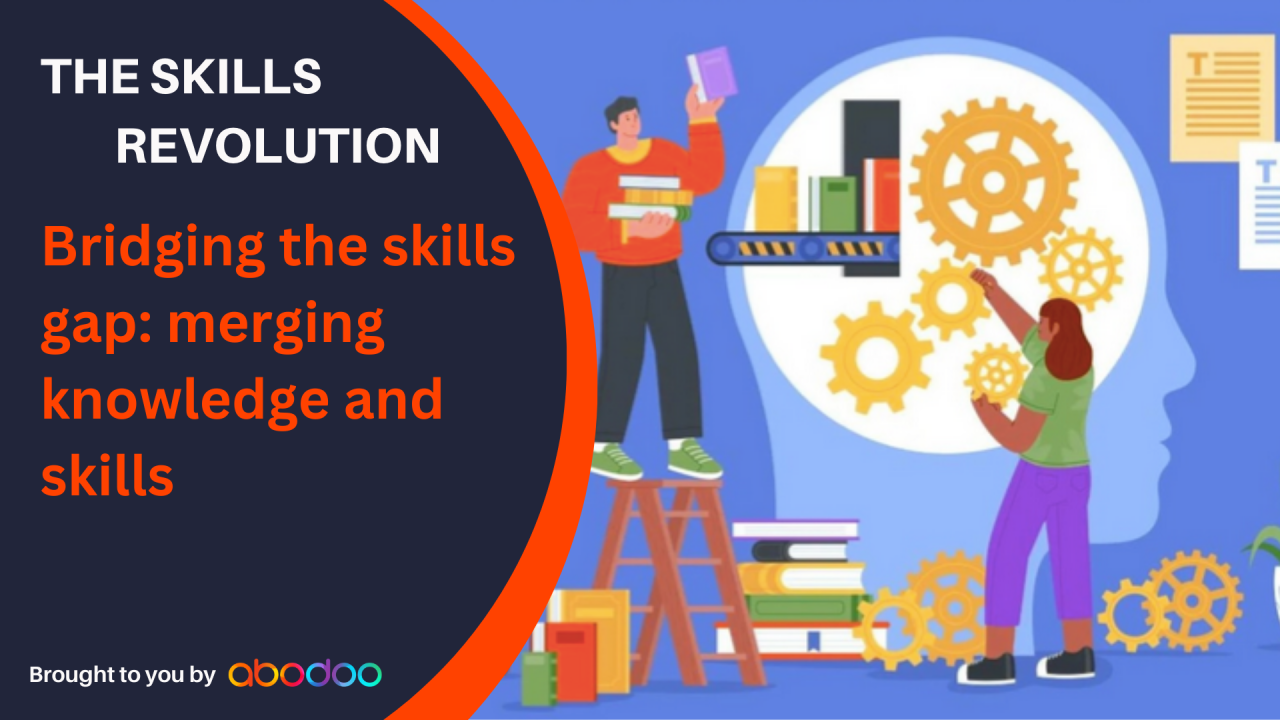
Bridging the skills gap: merging knowledge and skills
Vanessa Wainwright
2030 Skills Mission to democratise access for 100 million people to learning and inclusive opportunities through the Skills Passport
In 1969 Peter Druker introduced the concept of ‘knowledge society’: an age where knowledge and information become key resources in the economy and are the main variables that lead to a transformation in society. Knowledge, in this context is what we refer to as formal education, which drives innovation, developing intellectual abilities, awareness and understanding of the world. Traditionally, education is seen as a structured process that takes place in formal settings, like schools, and universities, focusing on knowledge acquisition, theoretical understanding, critical thinking and continuous learning. While these concepts remain necessary to drive social and economic progress; there has been a shift towards a ‘skills society’, where the focus is on the acquisition and application of skills to solve real world problems and meet the practical demands of the economy. The 4th industrial revolution and the development of AI are the main forces driving this change, where skills are more practical, hands on, and often associated with work settings and training.
Skills are what allow individuals to perform tasks and solve problems effectively. In other words , while education provides the foundations, the "knowing," skills enable individuals to apply that knowledge in real world situations. In a skills society there is often a stronger connection between education and employment, with pathways designed to equip people with job ready skills.?
Why skills matter
The UK, along with many other countries, is experiencing rapid technological change associated with robotics and AI,?with a mix of hard skills (like coding, writing, operating machinery), and soft skills (like communication, critical thinking and analytical skills becoming more and more in demand. According to the institute for the future of work (2024), we are facing an unprecedented skill shortage, which takes multiple forms:?
According to the world economic forum (2020), not only different jobs will keep emerging in the future, but existing jobs will also change. 42% of core skills required to perform the existing jobs are expected to change and more than 1 billion people need to be reskilled by 2030.??
While the job market and employers are struggling to find talent to fill in job vacancies, as reported by numerous government related institutions for the past few years, an analysis by the New Economic Foundation (NEF, 2021) reported that 80% of employers surveyed believe that current graduates are lacking the skills they need to work more closely with the industry.?
Although the situation differs among sectors, skill shortages, and in particular, soft skills shortages, can be found across all sectors.?
Can Higher Education settings tackle skills shortages?
Research conducted in Higher Education (HE) settings, shows a gap between what employers want and what students perceive as important for employment, which then translates into a mismatch between expected skills graduates should have gained in? HE and the skills actually acquired (Otermans et al.,2023).?The study conducted by Otermans et al. (2023), highlighted through a survey of over 1000 students and graduates, a lack of acquisition of skills such as leadership skills, conflict?management skills, ability to write a CV, and organisational skills among others. Adaptability to change and need for continuous learning were also skills were students and graduates felt less?confident about.
What all these points are showing, to summarise, is a clear need for all stakeholders to communicate and collaborate in order to create a society where knowledge and skills work together in better sync. Higher Education institutions need to improve their curriculum to target the development of both? ‘hard' and 'soft' skills and provide graduates with better employability skills altogether, and this starts with a thorough mapping of 'hard' and 'soft' skills, which needs to be incorporated in the curriculum and assessed using a variety of formative assessment tools, such as peer reviews, presentations and real world scenarios applications. This is especially necessary in the age of generative Al and the tools available to students to help them in more traditional summative assessment such as essays. The most important step though is a stronger collaboration between the job market, where new and changing skills needs to be identified and mapped; and educational institutions, who need to align skills and bridge the gap between graduate skills and the industry needs. By doing this, we would not only tackle skill shortages, but we would also create a more sustainable world, where everyone can have better access to knowledge and skills to succeed in their career and the jobs of the future.
Key takeaways
By Dr. Elisa Forestan-Barnes
Next Steps
Share Your Stories
Stay Connected
Thank you for being part of our community and sharing your experiences.
If you are interested in reading more, you can read our previous Skills Newsletters
Sources
Drucker, P. F. (1993). The Rise of the Knowledge Society. The Wilson Quarterly, 17, 52-72.
Institute for the future of work, (2024) https://www.ifow.org/publications/old-skills-new-skills---what-is-changing-in-the-uk-labour-market , accessed on 7th November 2024.
Otermans P.C.J., Aditya, D. and Pereira, M.(2023). A study exploring soft skills in higher education. Journal of Teaching and Learning for Graduate Employability, 14(1), 151–168.
The access Group, (2024),? https://www.theaccessgroup.com/en-gb/hr/resources/employee-talent-skills-development-skills-shortage/ , accessed on 7th November 2024.
New Economic Foundation, (2021) https://neweconomics.org/2021/10/uk-faces-a-skills-shortage-with-only-6-of-workers-upskilling-for-a-new-job-pre-pandemic , accessed on 8th November 2024.